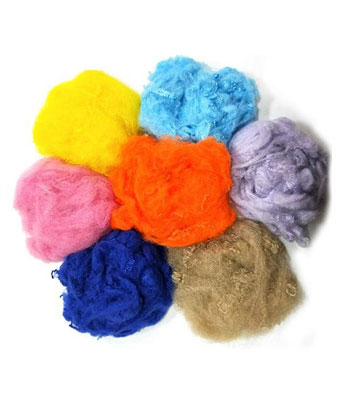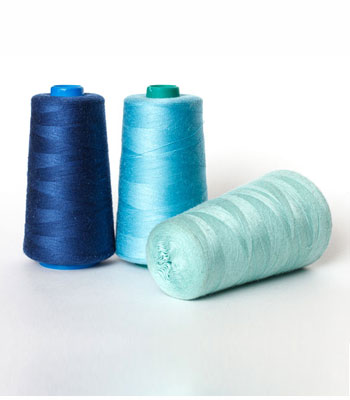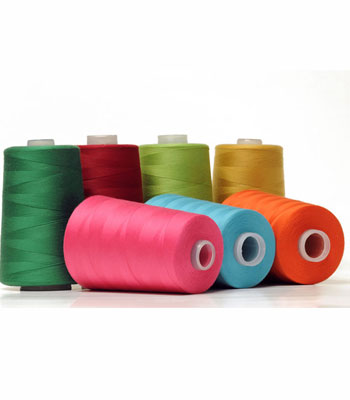Polyester fibers
$0.00These synthetic fibers are produced from the polymerization of the viscosity of dimethyl terephthalate or Terephthalic acid and Ethylene glycol in the procedure which is named melt spinning. Polyester fibers are found in the market with other commercial names such as Dacron and Terylene. These fibers are used in making carpets, floor coverings, and sleeping products like pillows, quilts, mattresses, and dulls. Also Polyester fibers are mainly used in garments, clothes, different types of textiles. Their resistance against constant, heavy movements and their water resistance make them count as a perfect fiber to use as an ideal fiber in wet and humid environments.
Polyester fibers
$0.00These synthetic fibers are produced from the polymerization of the viscosity of dimethyl terephthalate or Terephthalic acid and Ethylene glycol in the procedure which is named melt spinning. Polyester fibers are found in the market with other commercial names such as Dacron and Terylene. These fibers are used in making carpets, floor coverings, and sleeping products like pillows, quilts, mattresses, and dulls. Also Polyester fibers are mainly used in garments, clothes, different types of textiles. Their resistance against constant, heavy movements and their water resistance make them count as a perfect fiber to use as an ideal fiber in wet and humid environments.
Polyester fibers
$0.00These synthetic fibers are produced from the polymerization of the viscosity of dimethyl terephthalate or Terephthalic acid and Ethylene glycol in the procedure which is named melt spinning. Polyester fibers are found in the market with other commercial names such as Dacron and Terylene. These fibers are used in making carpets, floor coverings, and sleeping products like pillows, quilts, mattresses, and dulls. Also Polyester fibers are mainly used in garments, clothes, different types of textiles. Their resistance against constant, heavy movements and their water resistance make them count as a perfect fiber to use as an ideal fiber in wet and humid environments.
Polyester Yarn
$0.00The largest share of produced yarns including synthetic and natural is made up of the polyester fibers. Polyester fibers, like all other synthetic fibers, are manufactured industrially. In terms of characteristics, they are good alternative for natural fibers, such as cotton. To produce polyester, the combination of dimethyl terephthalate and polyethylene glycol or terephthalic acid (a substitute for dimethyl terephthalate) is used in the vicinity of proper catalysts.
Polyester Yarn
$0.00The largest share of produced yarns including synthetic and natural is made up of the polyester fibers. Polyester fibers, like all other synthetic fibers, are manufactured industrially. In terms of characteristics, they are good alternative for natural fibers, such as cotton. To produce polyester, the combination of dimethyl terephthalate and polyethylene glycol or terephthalic acid (a substitute for dimethyl terephthalate) is used in the vicinity of proper catalysts.
Polyester Yarn
$0.00The largest share of produced yarns including synthetic and natural is made up of the polyester fibers. Polyester fibers, like all other synthetic fibers, are manufactured industrially. In terms of characteristics, they are good alternative for natural fibers, such as cotton. To produce polyester, the combination of dimethyl terephthalate and polyethylene glycol or terephthalic acid (a substitute for dimethyl terephthalate) is used in the vicinity of proper catalysts.
Viscose Yarn
$0.00Viscose is a man-made fiber- recycled fiber- and is the most important member of the Rayon’s fibers family. The raw material used for production of the viscose fibers are cotton linter and wood cellulose (mainly trunks of forest trees), which is a disadvantage of the viscose fibers since it damages the environment. The cross-section of viscose fiber is wavy and with lengths similar to cotton, linen, and wool fibers.
Viscose Yarn
$0.00Viscose is a man-made fiber- recycled fiber- and is the most important member of the Rayon’s fibers family. The raw material used for production of the viscose fibers are cotton linter and wood cellulose (mainly trunks of forest trees), which is a disadvantage of the viscose fibers since it damages the environment. The cross-section of viscose fiber is wavy and with lengths similar to cotton, linen, and wool fibers.
Viscose Yarn
$0.00Viscose is a man-made fiber- recycled fiber- and is the most important member of the Rayon’s fibers family. The raw material used for production of the viscose fibers are cotton linter and wood cellulose (mainly trunks of forest trees), which is a disadvantage of the viscose fibers since it damages the environment. The cross-section of viscose fiber is wavy and with lengths similar to cotton, linen, and wool fibers.








